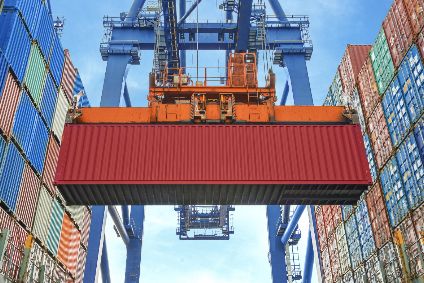
A number of companies have responded to US Department of Commerce to warn that proposed US import tariffs of 20% would harm the US auto industry. General Motors, BMW and Toyota are among the companies who have formally filed letters on the subject with the US Department of Commerce.
BMW warned that future investment in the US could be impacted, which would result in fewer jobs.

Discover B2B Marketing That Performs
Combine business intelligence and editorial excellence to reach engaged professionals across 36 leading media platforms.
President Trump launched an investigation by the Department of Commerce into whether auto imports pose a national security threat and has threatened to impose 20% tariffs on cars imported from the EU.
“The domestic manufacture of automobiles has no apparent correlation with US national security,” BMW wrote in a letter to US Secretary of Commerce Wilbur Ross.
BMW said that Chinese tariffs on US passenger cars, imposed in retaliation for US duties on Chinese goods, have already increased the cost of exporting to China. Mercedes has similarly warned that its profits will be hit by higher tariffs on US shipments to China. Any new US tariffs would likely lead to further retaliatory measures from China and the EU.
In addition, higher tariffs on components imported to the United States would make other production locations outside the country more competitive, BMW pointed out.
“All of these factors would substantially increase the costs of exporting passenger cars to these markets from the United States and deteriorate the market access for BMW in these jurisdictions, potentially leading to strongly reduced export volumes and negative effects on investment and employment in the United States,” BMW said.
General Motors has also warned that higher US import tariffs could cost jobs and raise vehicle prices.
“The United States directly benefits from GM’s ability to maintain a competitive edge and maximize the effectiveness of our operations on a global scale,” GM said in its letter to the Department of Commerce. It also warned that increased import tariffs could lead to a “smaller GM, a reduced presence at home and abroad for this iconic American company, and risk less – not more – US jobs.”
It also said that global competitiveness would be threatened.
In its letter, Toyota warned of supply chain disruption at its US facilities. “Tariffs on imported parts will disrupt US-based production of motor vehicles, since it will deprive our US manufacturing plants of key parts and components,” it said. “Like most global automakers, including the Detroit-based companies, Toyota sources most key parts and components locally, e.g. engines and chassis, but also imports certain specialised parts and components. There is no vehicle in the United States, whether from Toyota, GM, Ford, FCA, Daimler or Hyundai, that is sole-sourced from exclusively U.S. parts and components.”
The European Union has also warned the United States that imposing import tariffs on cars and car parts would harm its own automotive industry and likely lead to counter-measures by its trading partners on US$294bn of US exports.
Trump said last week that the government was completing its study and suggested the United States would take action soon, having earlier threatened to impose a 20% tariff on all EU-assembled cars.






